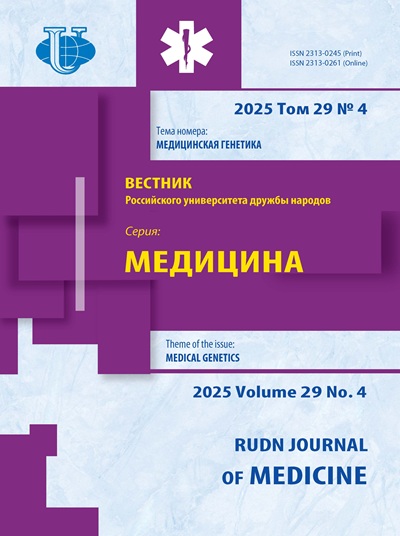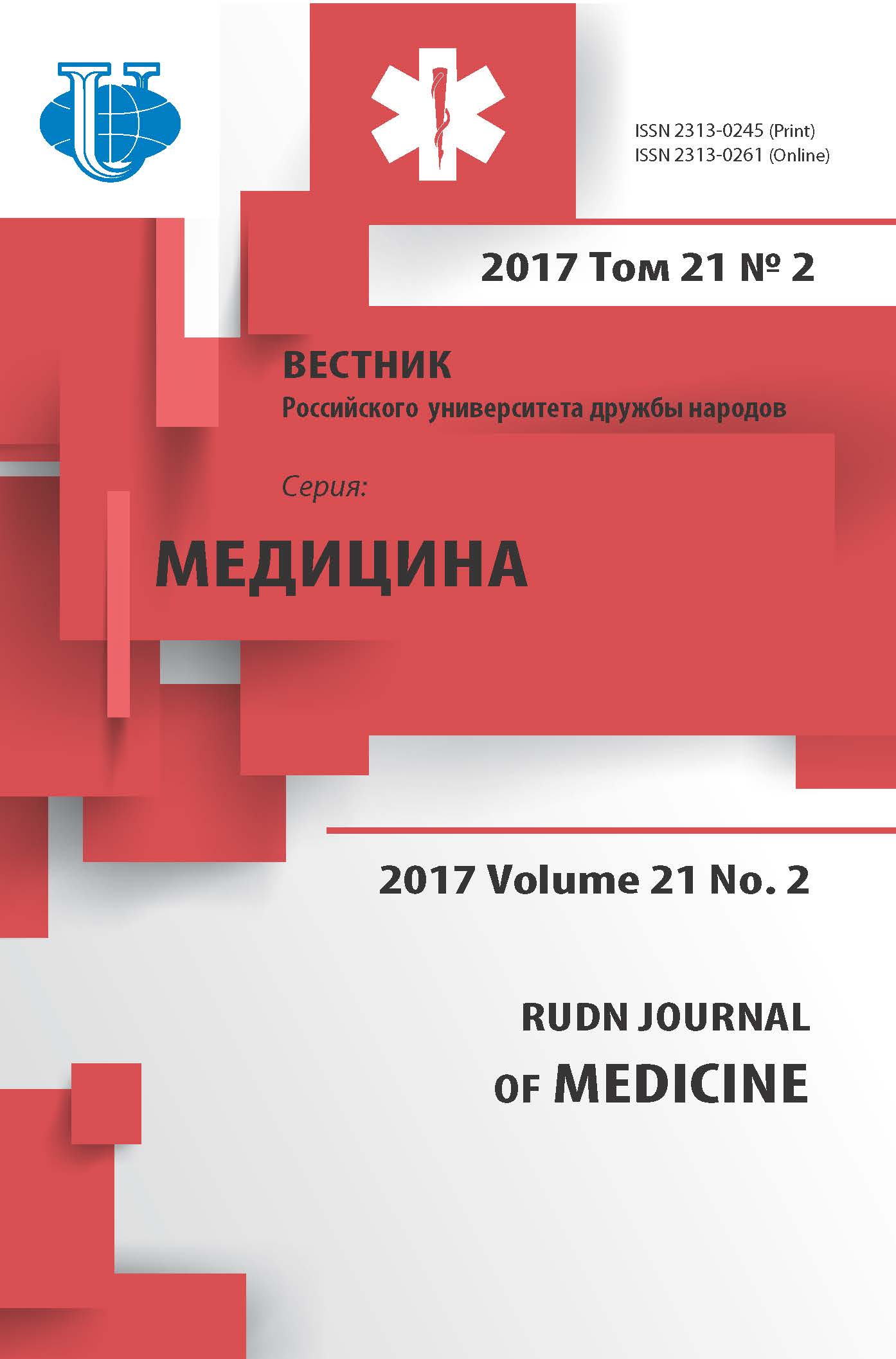STAGES OF MEDICAL AND SOCIAL SUPPORT OF RESERVE OFFICERS (RETIRED)
- Authors: Popov AV1
-
Affiliations:
- Polyclinic of branch № 6 FSBI «3rd Central Military Clinical Hospital named after A.A. Vishnevsky» Russian Defense Ministry, Moscow
- Issue: Vol 21, No 2 (2017)
- Pages: 304-311
- Section: Articles
- URL: https://journals.rudn.ru/medicine/article/view/16651
- DOI: https://doi.org/10.22363/2313-0245-2017-21-2-304-311
- ID: 16651
Cite item
Full Text
Abstract
The data obtained during the survey of 574 reserve officers (retired) indicates that about half of them need rehabilitation. At the same time, rehabilitation programs should be maximally adapted and personified depending on the adaptation potential. The developed three-stage system of medical and so-cial care to military reserve officers (retired) and the algorithm for its implementation including the rules for intra-departmental cooperation is described in the article.
About the authors
A V Popov
Polyclinic of branch № 6 FSBI «3rd Central Military Clinical Hospital named after A.A. Vishnevsky» Russian Defense Ministry, Moscow
Author for correspondence.
Email: serpent2007@yandex.ru
заведующий отделением поликлиники филиала № 6 ФГБУ «3-го Центрального военного клинического госпиталя им. А.А. Вишневского» Минобороны России, аспирант кафедры общественного здоровья, здравоохранения и гигиены ФГАОУ ВО РУДН
ул. Скаковая, д. 16, г. Москва, РоссияReferences
- Arabidze I.T. & Mukhin V.I. Social adaptation of military personnel discharged to the reserve: the problems of the megalopolis. Scientific and educational problems of civil protection. 2012. N 2. P. 68—72. (In Russ).
- Belova A.Yu. Psychological support of social adaptation of servicemen dismissed to the reserve, and members of their families [dissertation]. Tver, 2004. 24 p. (In Russ).
- Grigorenko L.A. Comprehensive socio-hygienic study of the health status of military pensioners [dissertation]. Мoscov, 2010. 24 p. (In Russ).
- Davydova T.E. & Perepelkina N.Yu. Dynamics of Parameters of the Quality of Life of Service-men. Public Health and Public Health. 2015. №1. P. 81—85. (In Russ).
- Ivashchenko A.V. Innovative approaches to improving the system of social support for servicemen dismissed from the Armed Forces. Izvestiya Institute of Engineering Physics. 2013. N 29. P. 90—92. (In Russ).
- Karpukhin S.V. Military sociology and the main problems of social protection of servicemen in Russia. Scientific and technical bulletins of the St. Petersburg State Polytechnic University. Eco-nomic sciences. St. Petersburg, 2006. N 3. P. 209—211. (In Russ).
- Kovardakova M.A. & Chertushkina T.A. Model of vocational training of specialists in social work for activities with military personnel discharged to the reserve. Education and society. 2015. N 1. P. 56—59. (In Russ).
- Maslov E. Social protection of servicemen dismissed to the reserve. Social policy and social part-nership. 2011. N 11. P. 52—60.
- Medvedeva G.P. & Korosteleva V.A. Problems of social adaptation of servicemen dismissed to the reserve. Actual problems of theory, history and practice of social work: a collection of scientific articles of students and teachers of the Department of Theory and Methodology of Social Work. Мoscov, 2010. P. 31—37. (In Russ).
- Muradov I.A. Methodical approaches to the adaptation of military reserve personnel in the enter-prise system [dissertation]. Velikiy Novgorod, 2007. 24 p. (In Russ).
- Peredelsky O.O. The problem of interaction of municipal authorities in the field of employment of servicemen who are being retired in the reserve, in the Naro-Fominsk district of the Moscow re-gion. StateReg: state regulation of public relations. 2013. N 3. P. 6. (In Russ).
- Razov P.V. Risks of social adaptation of former Russian servicemen to the conditions of civil life. Social and humanitarian knowledge. 2015. N 7. P. 126—132. (In Russ).
- Solokhina L.V. & Akimov I.V. Modern problems of departmental medicine and their influence on the military family. Far Eastern Medical Journal. 2011. N 3. P. 113—117. (In Russ).
- Chertushkina Т.А. A Retrospective Analysis of Social Protection and Pension Provision of Ser-vicemen Dismissed to the Reserve and Their Family Members. In law and education. 2011. N 12. P. 161—167. (In Russ).
- -167.
Supplementary files















